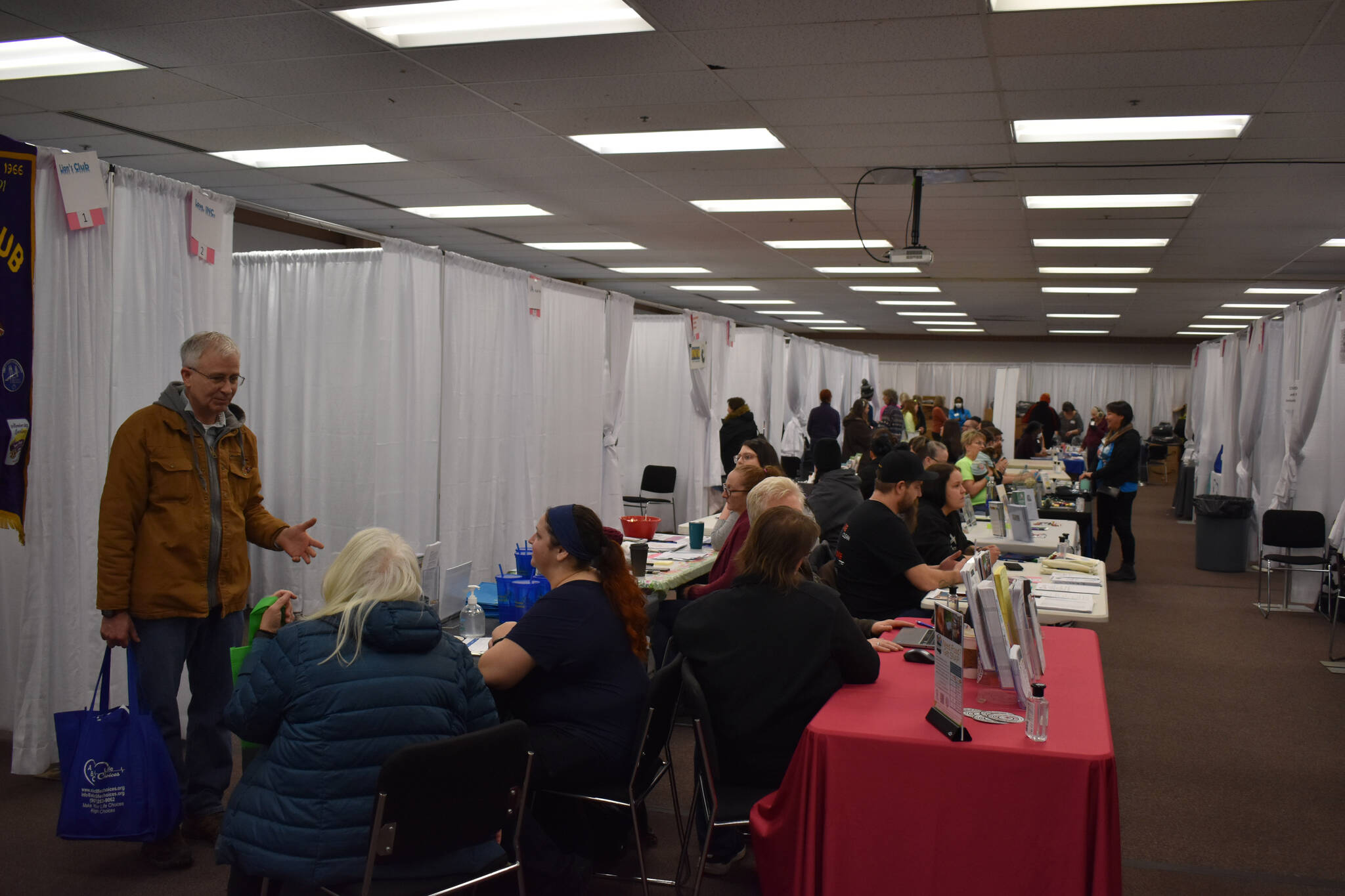Project Homeless Connect, held in Soldotna for the 13th year last week, provided services to 140 members of the community this year, according to data provided by local organizers on Friday.
The event, held Tuesday, Jan. 30, saw 140 participating individuals — though the information provided says they represented more than 200 members of the community.
Of that number, 73% reported that this was their first time attending Project Homeless Connect. Ahead of the event, organizer Jodi Stuart said that a higher number of first-time attendees is a reassuring sign that the services being provided each year are working.
This year, around one in five attendees were of “prime employability” age, between 18-34. One in 10 were veterans.
The data says that 5% of attendees — one in 20 — said they slept in their car the night before the event. That week, temperatures had largely held far below zero, with the National Weather Service reporting lows of below -20 degrees for days surrounding the event — a brief warming and a low of zero degrees the night immediately prior.
A significant majority of attendees, at 87%, said “if an emergency cold weather shelter existed, they would use it.”
More than 40% said they had been homeless for a year or more. A similar number reported that they were survivors of domestic violence. Around a third of attendees each said that their last permanent address was in Kenai and in Soldotna.
Project Homeless Connect featured more than 30 vendors seeking to connect people experiencing housing insecurity — not just homelessness — with services.
A provided list of vendors says that there were resources for homeless prevention, disability, vision screening, medical care, child care, pet care, shelters, sober living, food service, pregnancy, testing for sexually transmitted diseases, vaccines, and identification from the Department of Motor Vehicles, among others.
At the event, 28% of those who reported they were homeless said it was their first time experiencing homelessness. Fewer, at 20%, said it was their second or third time, but the greatest percentage of people reporting homelessness said they had experienced four or more episodes of homelessness.
Individuals cited loss or lack of job, illness or injury, and substance use as primary reasons for homelessness.
At the event, 40 haircuts and 17 hand massages were provided.
Attendees said their primary needs were clothing, transportation and food. Other needs they described, the provided data says, are low-income housing, rental and utility assistance, firewood, dentures, housing that allows pets, storage, child care, gas vouchers and propane.
To afford rent and utilities without paying more than 30% of income on housing, the provided data says that an average Alaska household would need an income of $4,562 per month — $54,740 annually — to afford a two-bedroom apartment. That makes for an “hourly housing wage” of $26.32 per hour — or 97 work hours per week at minimum wage.
Kenai Peninsula-specific numbers show that the average hourly housing wage locally — $22.67 — is lower than the state average.
On the same day as the Soldotna event, related programs were held in Homer and Anchor Point. The Homer event, this year retitled “Community Resource Connect,” drew 105 attendees. The Anchor Point program saw 35 people.
For more information, visit kenaipeninsulahomeless.org.
Reach reporter Jake Dye at jacob.dye@peninsulaclarion.com.

